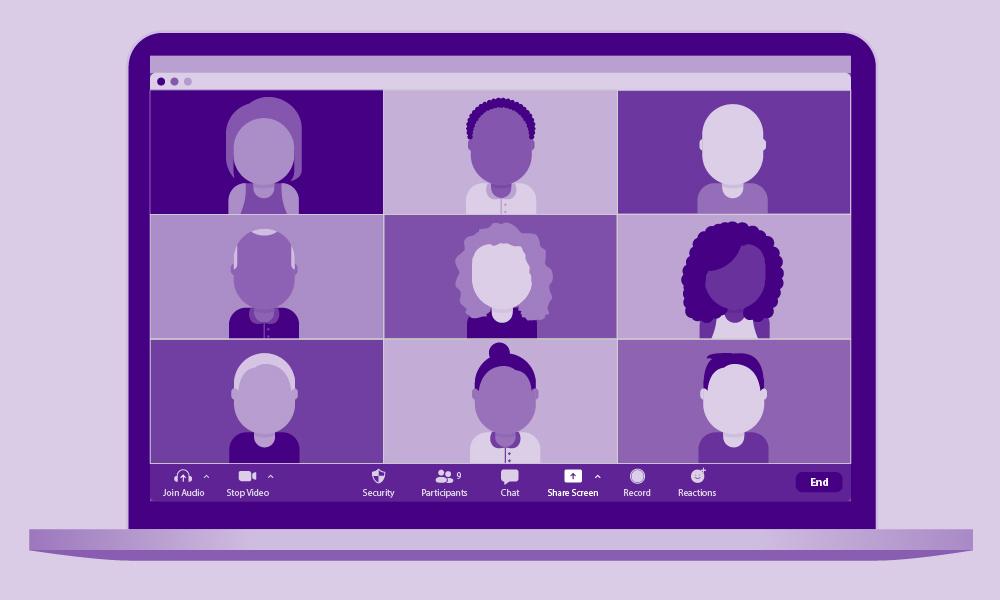Psychology launches Summer Research Experience for Underrepresented Undergraduates (SREUU) program
News
In May, the Department of Psychology launched the Summer Research Experience for Underrepresented Undergraduates (SREUU) program. The purpose of SREUU is to provide minority students with an opportunity to participate in faculty mentorship and gain practical research experience.
“Psychology’s faculty strive to provide students with research mentorship experiences. Underrepresented students may have limited access to these opportunities. This program was designed to provide this opportunity for students who may otherwise not be able to work closely with faculty on a research project,” said Kevin Apple, who supported faculty members as they founded the project during his time as academic unit head for psychology. While Apple has since been appointed to serve as associate dean for the College of Health and Behavioral Studies, he remains focused on cultivating opportunities for diverse students.
Six psychology students were involved with the program, which ran from mid-May through June. They committed to 15 hours of program-related work each week, including cohort meetings and individual meetings with their faculty mentor. One weekly cohort meeting was dedicated to topics relevant to the program, such as data management or research ethics. Everyone – faculty included – participated in a weekly book club. The group read and discussed If I Understood You, Would I Have This Look on My Face?: My Adventures in the Art and Science of Relating and Communicating by Alan Alda.
In addition to cohort activities, each student was paired with a faculty mentor who worked with them on research projects and training. Students had weekly meetings with their mentor for professional development and to check on research progress.
“Coming into this program, I had no experience in research,” Says Angela Dilao, a SREUU student participant. “I wanted to gain research experience but I didn’t know what I would be most interested in.” Dilao explored her interests alongside her peers and built connections with professors in the psychology department. She was able to acquire experience in hard skills, such as research design, development and software. Thanks to the emphasis on communication skills, she was also able to learn soft skills in empathetic communication and trust building with the members of her cohort.
Tashana Jackson, another participant, was paired with professor Kala Melchiori and worked with data from a study exploring the influence of stereotypes. Participants in the study were shown images of people engaged in everyday activities and asked to make inferences about the individual shown. Jackson was tasked with quantitative coding of the written data from the study. Melchiori also encouraged Jackson to do research on topics of her own interest, including the impact of superhero syndrome on African Americans in the armed forces and the workplace.
“Applying to be a part of this program was one of the best decisions I have made since attending JMU,” said Jackson. “The program helped to provide me with an amazing mentor and incredible networking opportunities.” Jackson went on to share that her faculty mentor was able to provide her with academic and professional guidance that she doesn’t have access to at home. Participating in the program provided her with clarity about what she wanted to do with her psychology degree, as well as practical experience working with other professionals and research techniques.
The program took several unexpected turns during the course of the six weeks as COVID-19 forced SREUU activities online. “The transition to working online was challenging, yet quickly and smoothly worked out thanks to the combined efforts of the faculty I served with as mentors for the SREUU program,” said Sri Upadhyay, assistant professor of psychology. “In fact, I think the virtual meetings helped us all open up more with each other. We had lively and rich discussions about research and other important topics to help our students succeed academically and professionally.”
Upadhyay’s mentee, Demitri Boyce, reported that meeting virtually made things interesting at first, but didn’t hinder progress with research or group activities. “The online format of this research did not take anything away from the experience. It is a safe atmosphere for both students and faculty; working and talking with other students of color was very influential for me,” he said.
As deaths of George Floyd and Breonna Taylor shook the JMU community the group also became a safe space to process these events and share experiences at a time when the student participants were particularly affected by them. “We also had critical conversations about how white supremacy and inequality are perpetuated on our campus. As a faculty member, I took their trust and openness very seriously and know that I have to pursue action to remain worthy of that trust,” said Melchiori.
Despite the challenges of a global pandemic and tragic events, psychology faculty were able to successfully launch a program that had meaningful impact on underrepresented students in the major. Interim department head Dan Holt reports that there are plans to offer SREUU again next year, with hopes that other departments will collaborate.
Dilao agrees, “The psychology department recognizes the unique experiences of underrepresented students and professors. This program was then developed to give those individuals the opportunity to collaborate through research. I hope that more departments in the near future take on this program so that JMU as a whole can continue to acknowledge and value our work and experiences.”
